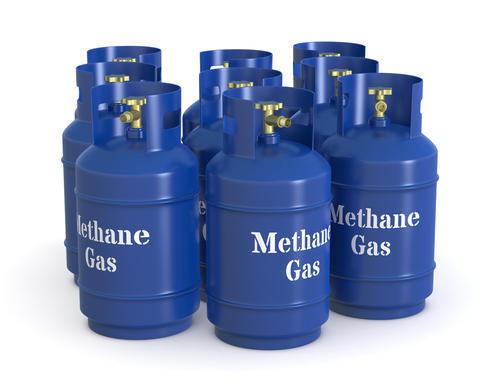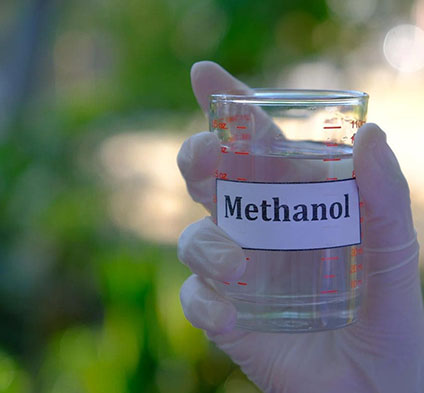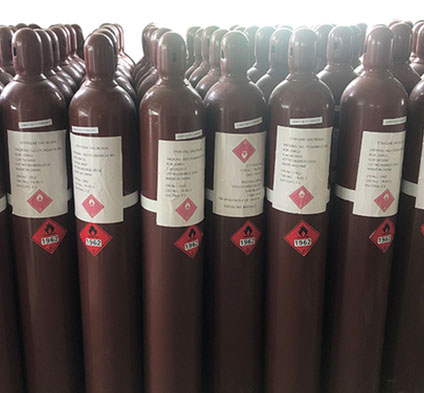Petrochemical Products
Refinery Products (Fuel & Gas)

Petrochemical industry
The petrochemical industry is a competitive industry that includes significant specialized innovations, and from an economic point of view , it is a profitable industry that will bring extraordinary profitability through the purchase and sale of petrochemical products in the global market. In terms of production volume, this industry accounts for approximately 10% of the world's total oil and natural gas. Based on the product value , the petrochemical industry has taken a larger share of the entire oil and gas industry, which shows the high value of petrochemical products compared to all types of fuels.

Division of petrochemical industries
1- Upstream units: In oil and gas refineries, light linear saturated or unsaturated hydrocarbons in oil or gas are separated from other hydrocarbons and sent as feed to basic units.
2-Basic units: In olefin, aromatic units and chemical complexes, raw materials are converted into basic materials such as ethylene and propylene for intermediate units.
3-Intermediate units: from basic materials, they produce feed for final units.
4-Final units: In these units, products at the end of the chain are produced and marketed.
5-Downstream units: In these units, the final petrochemical products are converted into consumer products such as synthetic fibers, plastic, rubber, etc.

Feed for petrochemical products
light and heavy naphtha and kerosene (liquid feed), natural gas and liquefied petroleum gas (LPG), NGL, and better to say methane, ethane, butane, propane, pentane, as well as nitrogen from the air (nitrogen), sulfur and phosphate soil, among the main Feeds are considered for petrochemical complexes. Most petrochemical products are derived from hydrocarbons such as propane, ethane, butane or other components separated from crude oil and natural gas liquids.
Like crude oil and natural gas, petrochemical products are primarily composed of carbon and hydrogen and are called hydrocarbons . If in the product molecule, carbon atoms are connected by single bonds , these molecules are said to be saturated. Now, if they are connected by one or more double bonds , these molecules are said to be unsaturated. Unsaturated chemicals are preferred as petrochemical feedstocks because they are chemically reactive and can easily be converted into other petrochemicals.
The feed materials used in the petrochemical industry can be divided into three general groups : olefins, aromatics, and the third group, which includes synthesis gas and minerals.

Petrochemical products
Petrochemical products are chemical and polymer materials obtained from oil or natural gas. They are an important part of the chemical and polymer industries because the demand for plastic and synthetic materials is constantly growing, and on the other hand, they make a major contribution to today's economy and society. These products are used to produce thousands of different products that people use every day.
Petrochemical products are extremely versatile and are used in a wide range of products, from food to basic chemicals, chemical intermediates (derivatives) and finally finished products including plastics, rubber, resins, synthetic fibers, adhesives, paints, materials Detergents include pesticides. In petrochemical industries, the organic chemicals produced in the largest volume are methanol, ethylene, propylene, butadiene, benzene, toluene and xylenes .
All kinds of petrochemical products
Petrochemical products are generally divided into 3 categories :
-
Basic products: include ethylene, propylene, sulfur, gasoline, ammonia, etc., which form the basis of petrochemical production.
-
Intermediate products: This category transforms basic products into feed needed to produce final products, such as PVC, ethylene glycol, melamine, etc.
-
Final products: they are used to make equipment and tools used by industries and the general public; Such as synthetic fibers, rubber, plastic items, chemical fertilizers, medical devices, etc.

99% of tires are created from oil and natural gas, and most of them are produced using naphtha raw materials. Naphtha is created during the distillation process and is heavier than gasoline. This material is one of the most important petrochemical materials simply because of its use in plastic production.
Considering the diversity of organic chemicals and the mass of their production methods for consumer and industrial products, this report is primarily focused on these nine (9) petrochemical products , their primary sources and final applications; These nine (9) important and useful products in the petrochemical industry include the following:
- Methane is a greenhouse gas that can be used as a fuel and is often included in rocket fuel.
- Ethylene: Used to make plastics, films, as well as detergents, synthetic lubricants and styrenes (to make protective packaging). Among the famous products that you may have heard many times, we can mention polyethylenes and polystyrenes.
- Propylene: A colorless and odorless gas used to fuel and manufacture polypropylene , a versatile plastic polymer used to produce products ranging from carpets to structural flooring.
- Benzene: Medicines, furniture, electronic devices and food packaging are obtained from this substance.
- Butane: are hydrocarbon gases that are generally used for fuel production as well as most industries
- Methanol: Methanol is used in thermal insulation and building construction
- Toluene: Toluenes create inks and sports equipment
- Butadiene: Butadiene is used in the manufacture of synthetic rubber
- BTX (benzene, toluene, xylene): Among the above, benzene, toluene and xylene are aromatic hydrocarbons.
Basic chemicals and plastics are the main building blocks of various types of durable and non-durable consumer goods. The many things we deal with every day, the clothes we wear, the building materials used to build our homes and offices, a variety of home appliances and electronic equipment, food and beverage packaging, and many products used in transportation. They are obtained from various chemical and plastic materials, and the vast majority of these goods can be produced by the petrochemical industry. The demand for chemicals and plastics is caused by global economic conditions, which are directly related to the demand for consumer goods.
Petrochemical products play a big role in medicine; Because they are used to create resins, films and plastics. Here are just a few examples:
• Phenol and cumene are used to make penicillin (a very important antibiotic) and aspirin.
• Petrochemical resins are used to refine and manufacture medicines, so the costs are reduced and the production process is accelerated.
• Manufactured plastics and resins are used to make devices such as artificial limbs and skin
• Plastics are used to manufacture a wide range of medical equipment including bottles, disposable syringes and more.
Petrochemicals are used to produce everything from plastic sheeting and mulch to pesticides and fertilizers. Plastics are also used to make string, silage and irrigation pipes.
Since petrochemical products are used to make plastics, fibers, synthetic rubber and films, these materials are widely used in many sectors of household products. The products used in the home sector include carpets, detergents, clothes, perfumes, waxes, etc.



